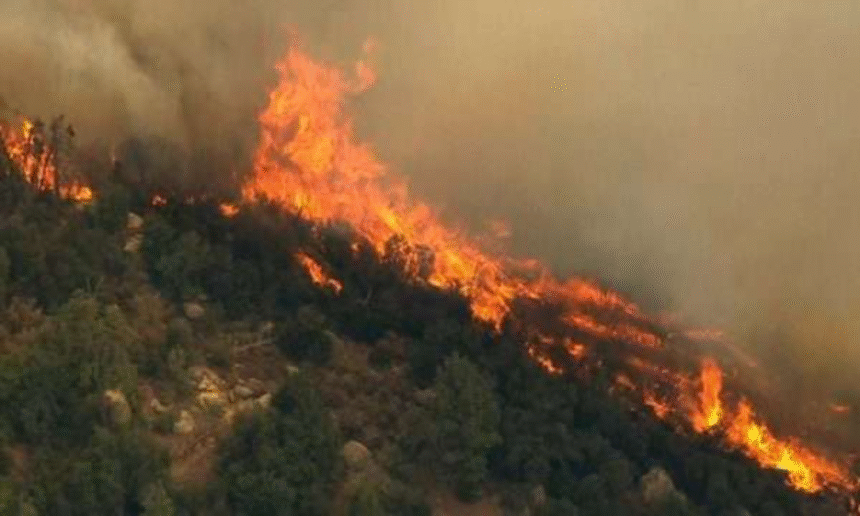Prishtina, Kosovo — July 28, 2025
The ongoing wildfire crisis affecting Southeastern Europe has garnered international media attention, including coverage by prominent British outlets, as nations across the region face escalating environmental and humanitarian challenges due to extreme heat and dry conditions.
Kosovo has been identified among the countries hardest hit, with authorities battling dozens of fire outbreaks fueled by scorching temperatures and high winds. Emergency officials in Kosovo confirmed that firefighters successfully contained 17 separate wildfires, while 12 remained active as of Sunday.
Tragically, the fires have also resulted in significant agricultural loss. In the southern city of Prizren, a blaze that swept through a private farm led to the death of eight cows, while another wildfire in eastern Kosovo claimed the lives of 40 sheep, according to local emergency services.
The fires in Kosovo are part of a broader regional emergency. In Greece, over 50 wildfires erupted within 24 hours, prompting evacuations and an urgent request to the European Union for aerial firefighting assistance. In Turkey, where wildfires have persisted for weeks, the government declared Izmir and Bilecik as disaster zones. One firefighter in Bursa lost his life due to a heart attack while on duty. Meanwhile, Albania experienced 26 new wildfire incidents on Saturday alone, following a major fire near Delvina that injured three people and forced the evacuation of approximately 2,000 residents.
Authorities across the Balkans have warned of continued risk as the heatwave persists, urging residents to follow safety instructions and report any new fire activity immediately. Kosovo’s emergency services remain on high alert, working in coordination with local municipalities to prevent further spread and protect affected communities.
This intensifying wildfire season is being closely monitored by environmental experts, who link the increased frequency and severity of such events to broader climate change patterns impacting the region.







